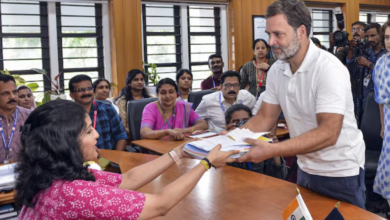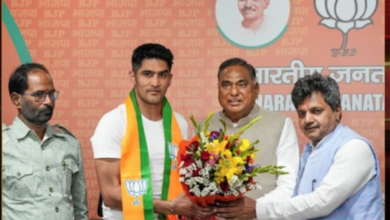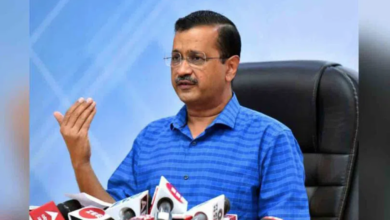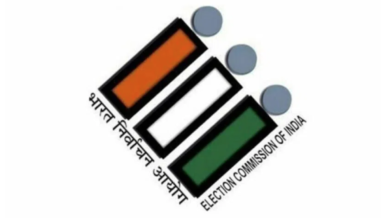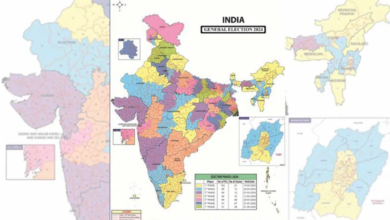Opinion: BJP’s dirty tricks and democracy
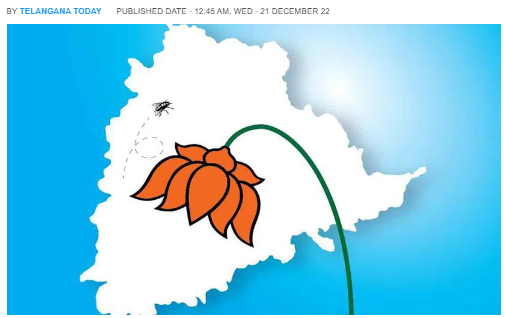
Employing agencies under its control to browbeat opposition parties or those opposing its political ideologies is a clear danger for democracy.
By Jandhyala Ravishankar
Hyderabad: Coming up with an argument to mount pressure on a rival political party based on ideological or political issues is a common tactic employed by any political party. The parliamentary democracy provides ample opportunities for political parties to air their views on any issue and mount pressure on governments through debates or discussions in legislative bodies and this is one of the rights enshrined in the Constitution.
But when a political party in power chooses to ignore the democratic ways of disagreeing with another political party and instead employs agencies under its control to browbeat the opposition parties or those opposing their political ideologies, it is a clear danger for democracy. And this situation is palpable in India with the Bharatiya Janata Party throwing all accepted norms to the wind in trying to win an upper hand over opposition parties.
BJP’s Political Machinations
The political machinations of the BJP are very much visible in Telangana, where a different political game is being played out by the party in power at the Centre. The recent instance of the MLA poaching attempt stands as the best example of to what lengths the BJP can stoop to gain a political brownie point. Central agencies like the Enforcement Directorate (ED), the Central Bureau of Investigation (CBI) and the Income Tax (I-T) department have become willing tools in the political game played by the BJP to target a political force, the Bharatiya Rashtra Samithi (BRS), which sought to disagree with the powers that be on many an agenda.
While such tactics yielded positive results in States like Karnataka, Madhya Pradesh and Maharashtra, where the BJP managed to buy legislators to form its government, the attempt boomeranged in Telangana, when the BRS legislators turned the tables on the BJP agents who offered them huge money. The BRS legislators tipped off the police and got the entire conversation recorded on videos and audio tapes making it a water-tight case. The BRS too acted with alacrity when sharing the evidence with the judiciary, media organisations and political parties across the country.
But a situation arose now where the accused persons in the MLA poaching case have been enlarged on bail, thanks to a litany of cases filed by BJP advocates to stall the progress of the investigation by a Special Investigation Team (SIT) formed for the purpose. Ironically, the complainant in the case, BRS legislator Rohit Reddy, has now become a target for harassment by the Enforcement Directorate. It is interesting to note that Rohit Reddy is being grilled for hours together without informing him about the case in which he is sought to be questioned.
Meanwhile, the SIT investigation is facing many hurdles. Despite the apex court’s directions that the probe be completed within four weeks, the delay is continuing on account of various cases being filed. When the Supreme Court has clearly stated that the SIT could continue the independent investigation, the BJP has opposed it through several petitions and got interim orders from the ACB Court and the High Court.
Flaws in BJP’s Arguments
In fact, within 24 hours of the filing of the FIR in the instant case, BJP State general secretary G Premendar Reddy filed a petition. Various technicalities were raised in BJP petitions opposing the arrest of the three BJP agents on the grounds that notice under Section 41 A of CrPC was not issued. Based on this argument, the ACB court had refused to send the accused persons to judicial remand. Later, they were remanded to judicial custody after the High Court’s intervention. But, when the SIT issued a notice under Section 41A of the CrPC to BJP national leader BL Santosh and an advocate Srinivas, the High Court issued an order not to arrest them. Even while this is so, the complainant in the case, legislator Rohit Reddy, is now being hounded by the ED which is not forthcoming with information about the case registered against him.
The other argument of the BJP that SIT officials work under the control of the Telangana government does not hold water as by the same merit, the CBI works under the control of the union government. There is no answer from the BJP to this query. Another legal issue is that when notices under Section 41 A are questioned, it should be remembered that there is clinching evidence in the form of videos, audio, phone messages and photographs. Hence, the SIT is empowered to not only issue the 41 A notices, but also to arrest them. There is also no need to take prior permission from any court. The SIT memo filed in the ACB court after including BL Santosh as an accused in the case was only providing information to the court. The High Court is now to deliver its orders on the ACB court striking down the memo filed before it.
Against this backdrop, one also has to look at how some leaders were let off the hook by the ED after they joined the BJP. The best example is of Assam Chief Minister Himanta Biswa Sarma who was an accused in the Narada Chit fund case registered by the CBI. But after he joined the BJP, the probe has been kept on the back burner. Yet another case is that of Mukul Roy of the Trinamool Congress in Bengal and others in Andhra Pradesh. It was only after they joined the BJP that the central agencies stopped their investigations. Compare this with the case of Rohit Reddy, who is the complainant in the MLA poaching case.
Despite his repeated requests to inform him about the case in which he is sought to be questioned, the ED did not come out with any information but is subjecting him to prolonged interrogations. Moreover, another flaw in the BJP argument is that no accused person has a right to choose an investigating agency and the courts have no right to halt investigations in any case. At the best in some rare cases like alleged fake encounters, courts have asked other agencies to conduct investigations.
In the current case, it is illegal to seek investigation by another agency attributing political motives. Moreover, the very promise of payment of bribe money itself constitutes an offence under Section 120 of the Anti-Corruption Act.
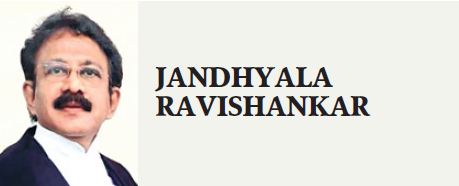
(The author is Senior Advocate, High Court)

